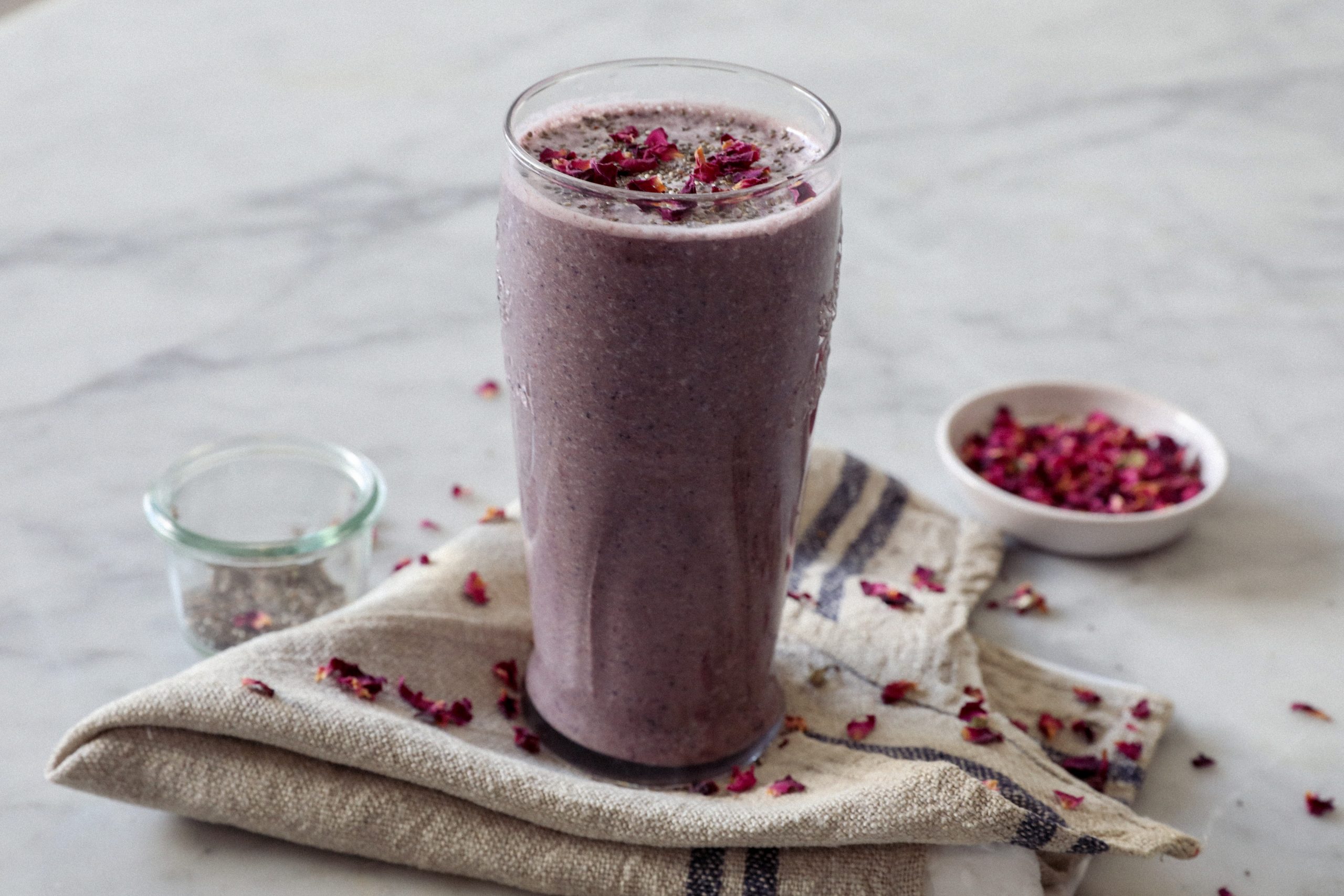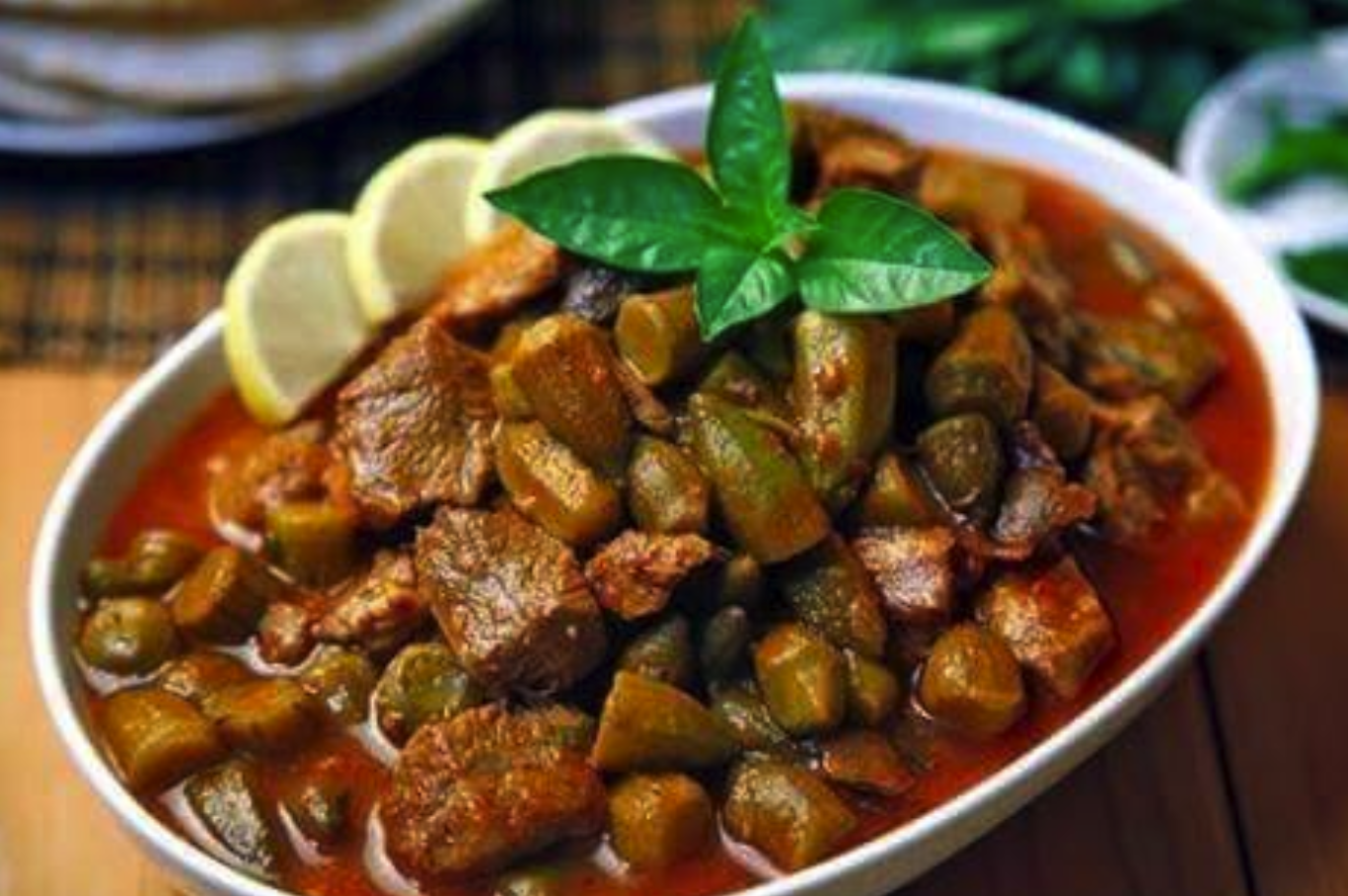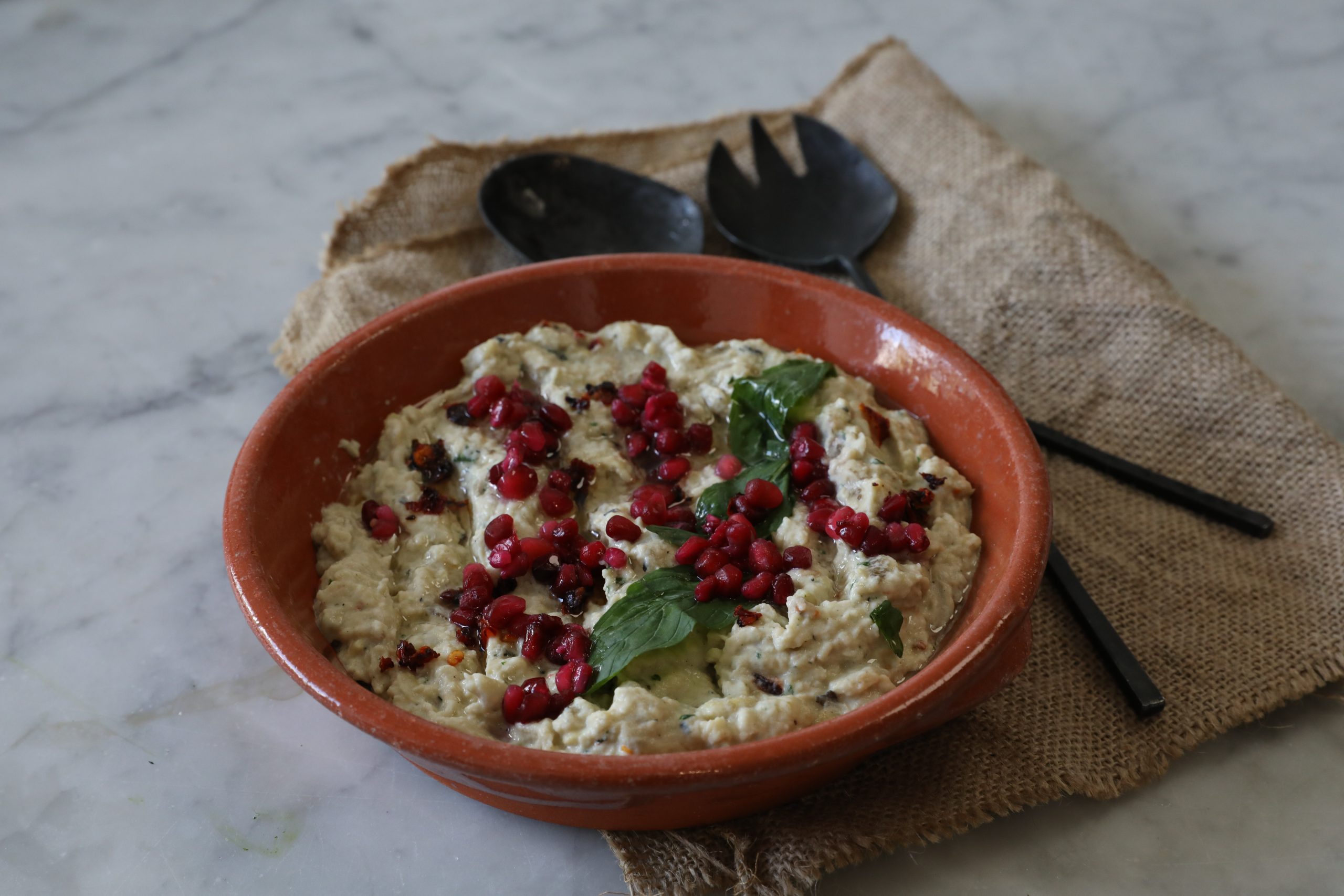Moodi’s Suhoor Smoothie
 Lebanon
Lebanon 
My interest in health and well-being is something I inherited from my mother and grandmother – but this recipe isn’t. The superfoods available to us today would have been a luxury to them. Spices like turmeric were expensive and during the civil war in Lebanon, even salt was a luxury.
This smoothie is probably my favourite liquid meal and I’m confident you’ll love it. It’s packed with micronutrients and Vitamin C and a great breakfast or meal replacement all year round.
I want to share my recipe and to give you a few tips to eating and drinking and staying fit and healthy in Ramadan – and year round.
In Ramadan, this smoothie also serves a unique purpose which is to keep you satiated, nourished and hydrated during the long days of fasting. It’s really important to plan a nutritious suhoor – the pre-dawn meal – to provide good levels of hydration and to sustain energy levels across the day. What we do in the morning is crucial not just for how we feel throughout the day, but also to our ability to maximise the absorption of nutrients from the food we eat and to avoid bloating and gastrointestinal distress. It’s also crucial to maintaining concentration for anyone who needs to be able to function and use their brain to its fullest capacity – and none of us should underestimate how cognitive function is critical for all jobs and professions.
Fasting all day and over-eating at night can easily take a toll on our physical health and our weight if we’re not sensible about what we eat and when we eat. From lack of hydration to nightly food comas post-iftar, a lack of discipline and planning can end up presenting real challenges to our weight and to our general health.
One of the reasons we fast is to experience hunger and dehydration in order to increase our empathy with the poor and the needy around the world, and locally – those who don’t have enough food and don’t choose voluntarily to go hungry. But it’s important to take good care of our bodies during Ramadan.
The Prophet (peace and blessings upon him) constantly encouraged looking after our health. It is mentioned in Hadeeth “You have a duty to your Lord, you have a duty to your body, and you have a duty to your family, so you should give each one its rights.”
You are excused from fasting if you are sick, elderly or physically or mentally incapable of fasting; a child who hasn’t reached puberty; travelling; and pregnant, breastfeeding or menstruating which can affect hydration and fatigue iron levels. You are also exempt if you are experiencing coercion or your well-being is threatened, as tragically it is in many places around the world, for example China’s one million or more Uighurs, an ethnic minority facing punishment and/or confinement for fasting.
Exemptions exist by Allah’s mercy so that the fast does not ask too much for those who would find it too difficult although there is an obligation to make up missed days by fasting another day at another time. Mondays and Thursdays are the recommended and blessed days to fast outside Ramadan – interestingly, but perhaps not coincidentally, the same days Michael Mosley suggests for the Fast 800 and 5:2 Diet.
If you can’t make up the fasting, your obligation is to feed a person in need which is one of the greatest acts of charity in Islam.
The most important thing for everyone fasting or on a fasting-based diet is Don’t Overdo It. Avoid extreme fatigue. Plenty of rest is essential. Engage in relaxation via meditation, yoga and mindfulness. Go to bed early to get more sleep. Drink plenty of water before sunrise and after sunset to stay hydrated which is essential for optimal health. Drink water with your date to rehydrate when you break your fast but avoid drinking while eating as it can cause indigestion, particularly on an empty stomach. Better to drink more 15-20 mins after eating rather than diluting enzymes and acids and hindering the digestive process. These are good rules to follow to maximise nutrient absorption and prevent gastrointestinal distress and the triggering of food intolerances at any time of the year.
Exercise should always energise and uplift you, even when you feel unmotivated and even in Ramadan – but reduce exercise time and frequency. Train in the final hour of fasting to maximise fat burning when your body is so depleted of glycogen that you will be tapping into fat as your fuel source far more effectively. If this isn’t possible, train two hours after eating in the morning or evening.
Eat and Drink Natural Anti-inflammatories. One potent natural anti-inflammatory is turmeric which you can happily add to many dishes – even to smoothies. Just beware that the orange powder stains so handle with care! Fruits high in antioxidants and flavonoids like blueberries are also great natural anti-inflammatories. All fruits and vegetables offer more pros than cons.
Ensure you’re getting the right ratio of carbs to protein to fat for your fitness goals. As we age, nutrition plays an even greater role in our metabolism and recovery. Carefully selecting carbs in a controlled and supervised way is important for those with insulin resistance or metabolic disorder.
Consider Adding Supplements. There are many supplements with high bioavailability that may help improve circulation and metabolism and reduce inflammation. As cellular functions naturally decline supplements play an important role in extending functionality. An integrative physician, nutritionist or naturopath will ensure you choose what’s right for you.
Lots of Vitamin C is so important. It’s an essential daily vitamin as the body doesn’t store it. It’s essential for iron absorption and collagen production, supports a healthy immune system, and is key for regulating a healthy metabolism.
Fish Oil and other oils are good for your cholesterol and cardiovascular health, lubricating the joints and supporting the neurones in the brain.
And at the end of the day, treat yourself to organic dark chocolate (70-85%). It ensures digestion is optimal for nutrient absorption from your last meal. Digesting whilst trying to sleep can lead to a broken sleep and hence, fatigue.
If you want or need to follow a strict fitness or health regime, see the article I put together for AMUST (The Australasian Muslim Times), with my tips and eating and exercise plans for taking good care of your body during Ramadan. Click here to view the article.
And so to my Suhoor Smoothie.
This recipe is amazing for hydration and for warding off the hunger pangs during the day’s fast to follow.
The ingredients combined pack a serving of vitamins and minerals that are difficult to compete with even on a normal full day of eating. Each ingredient serves a specific purpose. The protein is adequate to ensure muscle preservation and a healthy metabolism. The carbohydrates provide energy for your body and brain whilst fasting. That’s right, the brain uses carbohydrates for energy too and you’ll notice the positive impact it had on your temperament. The fats lubricate your joints and the neurones in the brain and suppress any potential insulin spike that may occur from the carbohydrates. This way you get an even slower, sustained energy release. And providing you don’t treat it as a drink between meals, it won’t cause weight gain or indigestion
This smoothie also looks and tastes divine so what better way can there be to start the day.
See @moodidennaoui and @meals_by_moodi on Instagram.
Share this story

Blitz everything together in a blender.
Pour into a long glass. And enjoy every mouthful. Don’t gulp






